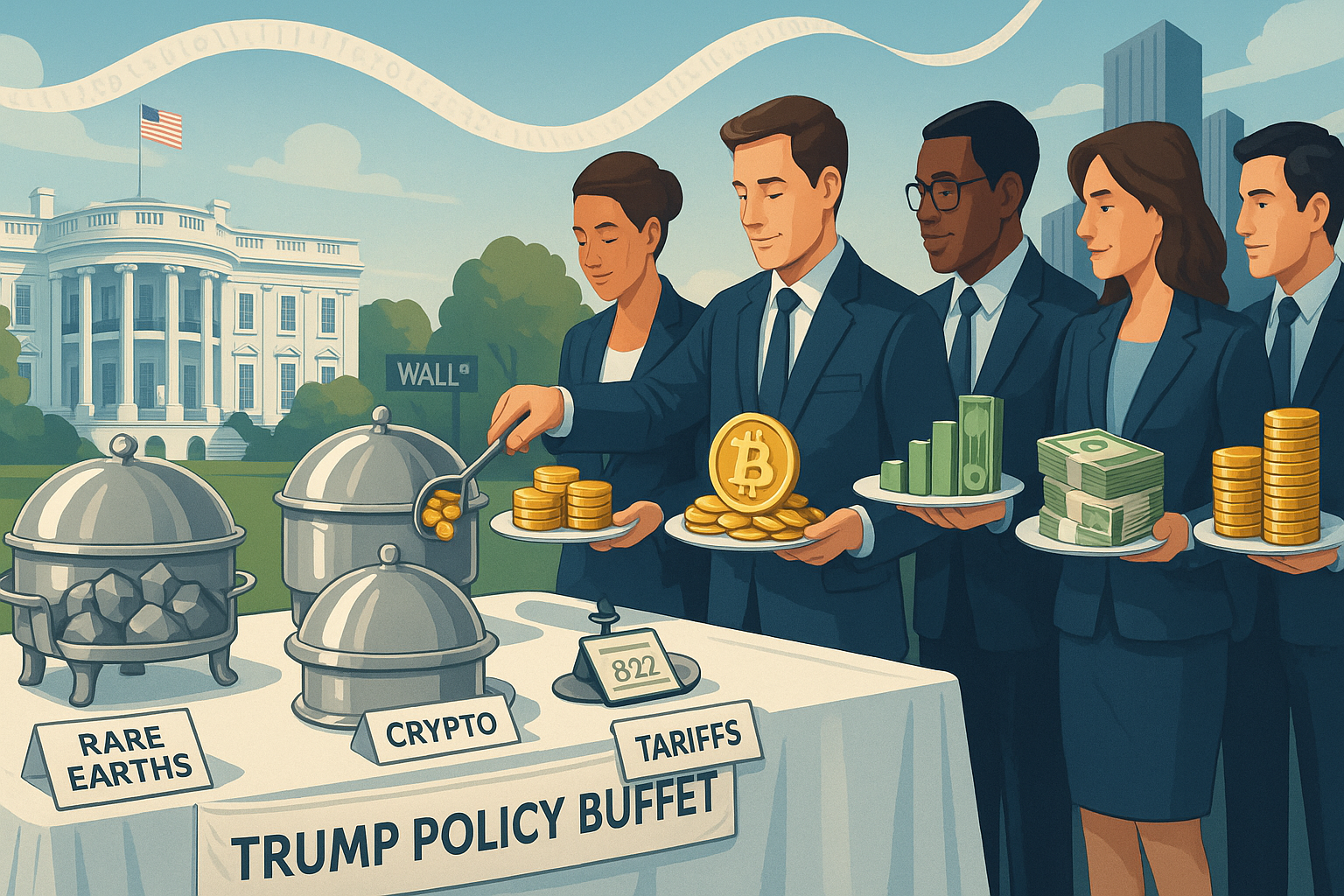Wall Street has always had a sweet tooth for policy bets, but man—the current Trump administration has turned that quiet dessert menu into an all-you-can-eat buffet. And investors are loading their plates.
I received an interesting email last week from a hedge fund manager (who, understandably, preferred to remain nameless) outlining what he calls "policy arbitrage" in the Trump era. After digging into it, I'm convinced it deserves more attention than it's getting.
First things first: markets reacting to government policy isn't exactly breaking news. What's different now—starkly different—is the volatility, predictability, and concentrated nature of these moves. When you've got an administration that telegraphs its intentions with all the subtlety of a foghorn and then actually follows through, certain investment plays become almost embarrassingly obvious.
Here's the playbook: spot sectors or companies aligned with Trump's loudly proclaimed priorities, get your money positioned before Wall Street fully catches on, then ride the wave when the official announcement drops. Simple, right?
Take the MP Materials situation. The U.S. has been dangerously hooked on Chinese rare earth elements for decades (I've been covering this vulnerability since 2017). Anyone paying attention to Trump's economic nationalism agenda could see that fixing this dependency was gonna be a priority. That Section 232 investigation might as well have been a billboard on Times Square, yet the market seemed weirdly slow to price in what was coming.
When the support package finally landed? Boom. The only surprise was the timing, not the outcome.
Crypto followed the same pattern. Trump's transformation from Bitcoin skeptic to digital asset champion wasn't exactly hidden. (Remember his "not a fan" comments from the first term? Ancient history now.) With a president explicitly stating his intentions—and possessing both the determination and authority to act on them—certain trades become what one portfolio manager delicately described to me as "shooting fish in a barrel."
But this goes deeper than just policy forecasting. The Trump administration has a distinctive governance style that creates specific market dislocations:
- They go big rather than incremental
- Benefits target specific industries, not broad economic sectors
- Personal relationships matter... a lot
- The signaling about priorities is unusually blunt
I find it useful to think about this "policy arbitrage" as a form of perfectly legal insider trading. You're not using non-public information; you're just paying closer attention to the very public signals than most of the market. The opportunity exists because traditional investors often discount political rhetoric or assume the bureaucracy will gum up the works.
Is it risky? You bet. Policy can pivot unexpectedly. Implementation gets delayed. Sometimes the market prices things in faster than you anticipated. And there's always the danger of mistaking correlation for causation when you're counting your winnings.
Look, I've covered four administrations as a financial journalist, and each created different trading opportunities. The technocratic, incremental approach of the Obama years rewarded subtle sector rotation strategies. Trump's more dramatic, personality-driven style creates these sharp dislocations that reward what amounts to event trading.
In theory, markets should eventually adapt to this pattern. Efficient market purists would argue these opportunities shouldn't exist or should quickly vanish as traders catch on. Yet they persist. This suggests either market inefficiency or that—even when the policy direction is crystal clear—the complexity of implementation creates genuine uncertainty.
If you're trading this way (and plenty of people are, whether they admit it or not), your morning routine probably includes scanning Trump's Truth Social posts, tracking agency rulemaking calendars, and monitoring which CEOs are getting White House invitations. Not exactly the fundamental analysis they teach at Wharton, but potentially more profitable these days.
The connection between policy and markets has always existed, but rarely has it been so direct, so predictable, and so... exploitable. Whether that's good for the country is a whole other question. But for certain traders? It's been a gold mine.
And that gold rush shows no signs of slowing down.
